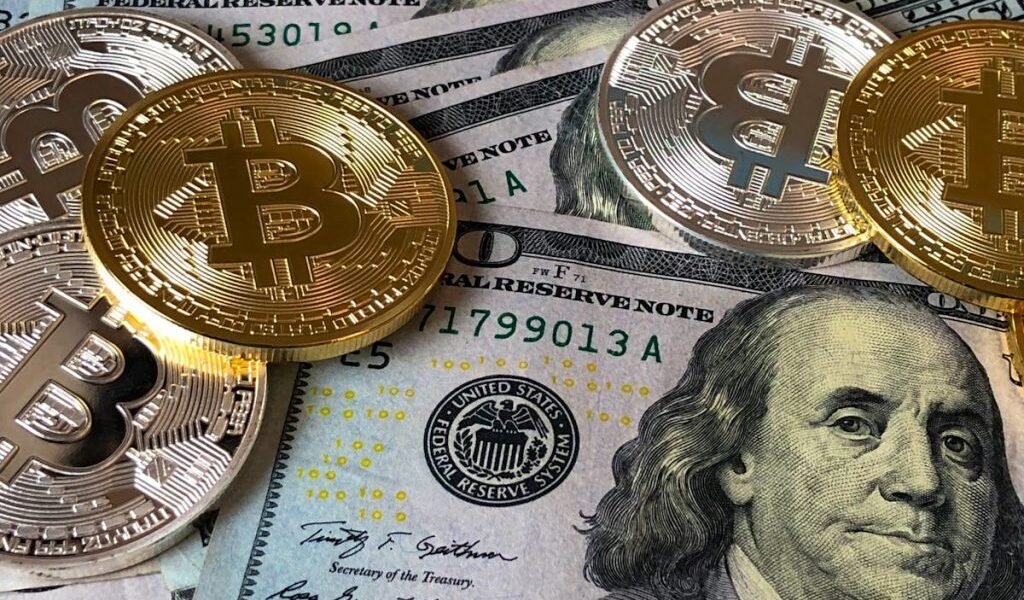In the olden days, people didn’t use money as we know it today. Instead, they relied on a system of bartering, where goods and services were exchanged for other goods and services. For example, a farmer might exchange wheat for meat with a butcher. However, as societies grew and trade became more complex, the need for a standardized medium of exchange arose.
The first forms of money were commodities like cattle, grains, and precious metals. These items were valued for their rarity, durability, and portability. The use of gold and other precious metals as money dates back to ancient civilizations, such as the Egyptians, Greeks, and Romans. Gold was particularly valued for its rarity, durability, and ability to be melted and reformed into coins.
As societies evolved, coins became a widely accepted form of money. The first coins were minted in ancient Lydia (modern-day Turkey) around 560 BCE. Coins were made from precious metals like gold, silver, and copper, and were stamped with official markings to guarantee their authenticity.
Fast-forward to modern times, and we see the widespread use of paper money and digital transactions. The development of banking systems, credit cards, and online payment platforms has made it easier than ever to acquire and use money.
So, how can you acquire money? Here are a few ways:
1. Earn a salary or wages by working for an employer.
2. Start your own business and sell goods or services.
3. Invest in stocks, bonds, or other financial instruments.
4. Participate in the gig economy by freelancing or driving for a ride-sharing service.
Now, let’s take a closer look at the money history of a specific country: Ghana.
Ghana, a country located in West Africa, has a rich history of trade and commerce. In the pre-colonial era, Ghanaian societies used a variety of commodities as money, including gold, salt, and cowry shells. The use of gold was particularly widespread, with gold dust being used as a medium of exchange.
During the colonial era, Ghana was a British colony, and the British introduced their own currency, the Ghanaian pound. After Ghana gained independence in 1957, the country introduced its own currency, the Ghanaian cedi.
Today, Ghana’s economy is largely driven by agriculture, mining, and manufacturing. The country has a growing financial sector, with several banks and financial institutions offering a range of services.
Money and its impact on societies
The Gold Standard
In the late 19th century, many countries adopted the gold standard, which linked the value of their currency to the value of gold. This meant that people could exchange their currency for a corresponding amount of gold. The gold standard helped to stabilize currencies and facilitate international trade.
Paper Money and Fiat Currency
The use of paper money became more widespread in the 20th century. Initially, paper money was backed by gold or other precious metals. However, with the advent of fiat currency, governments began to issue paper money that was not backed by any physical commodity. Instead, the value of the currency was determined by supply and demand in the foreign exchange market.
Digital Money and Cryptocurrencies
In recent years, the rise of digital technologies has led to the development of digital money and cryptocurrencies. Digital money refers to electronic payment systems, such as online banking and mobile payments. Cryptocurrencies, such as Bitcoin and Ethereum, use blockchain technology to facilitate secure and decentralized transactions.
The Future of Money
As technology continues to evolve, the nature of money will likely change. Some potential developments that could shape the future of money include:
1. Central Bank Digital Currencies (CBDCs): Many central banks are exploring the possibility of issuing their own digital currencies.
2. Decentralized Finance (DeFi): DeFi platforms use blockchain technology to provide financial services, such as lending and borrowing, without the need for intermediaries.
3. Contactless Payments: Contactless payment systems, such as Apple Pay and Google Pay, are becoming increasingly popular.
In Ghana, the use of digital payments is becoming more widespread. The Ghana Interbank Payment and Settlement Systems (GhIPSS) has introduced several digital payment platforms, including mobile money and online banking.
The Role of Technology in Shaping the Future of Money
Technology has played a significant role in shaping the future of money. The rise of digital payments, mobile wallets, and cryptocurrencies has transformed the way we think about money.
In Ghana, for example, mobile money has become widespread. Mobile money platforms such as MTN Mobile Money and Vodafone Cash have enabled people to make payments, transfer funds, and even save money using their mobile phones.
The use of digital payments has also increased financial inclusion in Ghana. According to a report by the Bank of Ghana, the number of people with access to formal financial services increased from 29% in 2010 to 58% in 2017.
The Future of Money: Trends and Prediction
As technology continues to evolve, the nature of money will likely change. Here are some trends and predictions for the future of money:
1. Increased use of digital payments: Digital payments are expected to become even more widespread, with more people using mobile wallets and contactless payment systems.
2. Rise of cryptocurrencies: Cryptocurrencies such as Bitcoin and Ethereum are expected to continue to grow in popularity, with more businesses and individuals using them for transactions.
3. Greater financial inclusion: Digital payments and mobile money platforms are expected to increase financial inclusion, especially in developing countries.
4. More emphasis on security: As digital payments become more widespread, there will be a greater emphasis on security and protecting against cyber threats.
In Ghana, the future of money is expected to be shaped by the increasing use of digital payments and mobile money platforms. The government has also announced plans to introduce a digital currency, the e-cedi, which is expected to facilitate digital payments and promote financial inclusion.
Conclusion
The evolution of money has been a long and complex process. From bartering to digital transactions, money has played a crucial role in facilitating trade and commerce. As technology continues to evolve, it’s likely that the nature of money will change. By understanding the history of money and its impact on societies, we can better navigate the complexities of the modern economy.
Sources
– “A History of Money” by Niall Ferguson
– “The Ascent of Money” by Niall Ferguson
– “Ghana: A Country Study” by LaVerle Berry
– “Ghana’s Economic History” by Kwame Akosah-Sarpong




